Filter by

Koordination und Kompromiss in föderalen Bildungssystemen
In vielen Ländern bereitet traditionell das Gymnasium auf die Lehramtsausbildung vor. Diese multimethodische Open Access Studie befasst sich mit der umkämpften Institutionalisierung eines zweiten, alternativen Zugangswegs (Fachmittelschule) in die Lehrpersonenbildung in der Schweiz. Mit der Analyse von Kritik, Konflikt und Kompromiss werden Prozesse der Harmonisierung von Bildung bei gleichze…
- Edition
- 1
- ISBN/ISSN
- -
- Collation
- -
- Series Title
- Soziologie der Konventionen
- Call Number
- XXIV, 404

Migration, Education and Employment
This is an open access book which focuses on different aspects of education, employment, and successful integration of migrants in three countries: Norway, Sweden, and Switzerland. The chapters in this book reflect on these issues from micro, meso and macro perspectives; some are based on interviews with migrants and people who work with them, others on documents and literature about migration.…
- Edition
- -
- ISBN/ISSN
- 978-3-031-41919-5
- Collation
- VIII, 203
- Series Title
- -
- Call Number
- -

Posthumanist and New Materialist Methodologies
This book features interviews with 19 scholars who do research with children in a variety of contexts. It examines how these key scholars address research 'after the child’ by exploring the opportunities and challenges of drawing on posthumanist and materialist methodologies that unsettle humanist research practices.
- Edition
- 1
- ISBN/ISSN
- 978-981-15-2708-1
- Collation
- -
- Series Title
- Children: Global Posthumanist Perspectives and Materialist Theories
- Call Number
- XX, 224

First-in-Family Students, University Experience and Family Life
This open access book, now in its second edition, offers a comprehensive overview of the experiences of First in Family (FiF) or first-generation students in higher education. It draws upon narratives of students and their family members and spans the entire university student life cycle (pre-entry, commencement, progression and graduation) with a focus on specific cohorts including mature-aged…
- Edition
- -
- ISBN/ISSN
- 978-3-031-34450-3
- Collation
- XXIII, 294
- Series Title
- -
- Call Number
- -

Schools and Society During the COVID-19 Pandemic
This open access book provides an analysis of the effects of the COVID-19 Pandemic on diverse education systems, and of the results of the policies adopted to sustain educational opportunities. Through a series of diverse national case studies, the book examines the preexisting fragilities and vulnerabilities in educational structures which shaped the nature of the varied responses, around the …
- Edition
- -
- ISBN/ISSN
- 978-3-031-42670-4
- Collation
- VI, 262
- Series Title
- -
- Call Number
- -
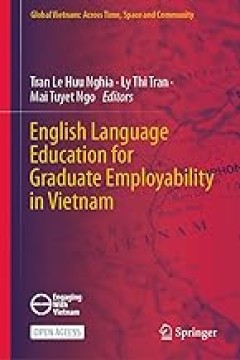
English Language Education for Graduate Employability in Vietnam
This open access book examines the teaching and learning of English for employability in Vietnamese higher education. Its content is framed within one country to better examine the research issues within the influence of contextual factors. This book investigates how English can contribute to the development of students' employability capitals, particularly in the aspects of human capital, soci…
- Edition
- -
- ISBN/ISSN
- 978-981-99-4337-1
- Collation
- XVIII, 380
- Series Title
- -
- Call Number
- -
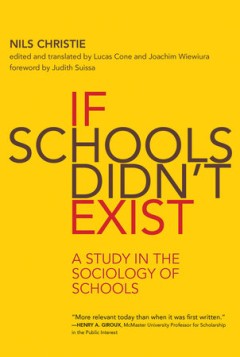
If Schools Didn't Exist: A Study in the Sociology of Schools
A classic in the philosophy of education, considering the fundamental purpose and function of schools, translated into English for the first time. This classic 1971 work on the fundamental purpose and function of schools belongs on the same shelf as other landmark works of the era, including Ivan Illich's Deschooling Society, Paulo Freire's Pedagogy of the Oppressed, and John Holt's How Chil…
- Edition
- -
- ISBN/ISSN
- 9780262358477
- Collation
- -
- Series Title
- -
- Call Number
- -
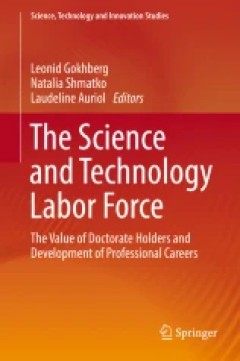
The Science and Technology Labor Force
This book provides an in-depth analysis of the demand for PhDs on the labor markets of twelve countries. The authors analyze the role of PhDs in the creation of innovation in a knowledge-based economy and examine economic issues such as the return on investment for the education and training of doctoral graduates. To provide a more comprehensive picture of the employment patterns, career paths …
- Edition
- 1
- ISBN/ISSN
- 978-3-319-27210-8
- Collation
- -
- Series Title
- -
- Call Number
- -
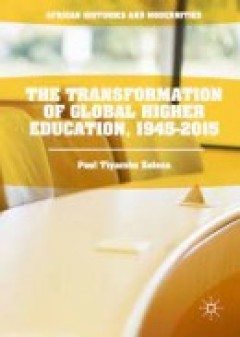
The Transformation of Global Higher Education, 1945-2015
This book explores some of the major forces and changes in higher education across the world between 1945 and 2015. This includes the explosions of higher education institutions and enrollments, a development captured by the notion of massification. There were also profound shifts in the financing and economic role of higher education reflected in the processes of privatization of universities …
- Edition
- 2
- ISBN/ISSN
- 978-1-137-52869-8
- Collation
- -
- Series Title
- -
- Call Number
- -
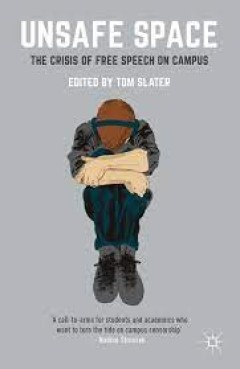
Unsafe Space the Crisis of Free Speech on Campus
The academy is in crisis. Students call for speakers to be banned, books to be slapped with trigger warnings and university to be a Safe Space, free of offensive words or upsetting ideas. But as tempting as it is to write off intolerant students as a generational blip, or a science experiment gone wrong, they’ve been getting their ideas from somewhere. Bringing together leading journalists, a…
- Edition
- 2
- ISBN/ISSN
- 978-1-137-58786-2
- Collation
- VII, 134
- Series Title
- -
- Call Number
- -
 Computer Science, Information & General Works
Computer Science, Information & General Works  Philosophy & Psychology
Philosophy & Psychology  Religion
Religion  Social Sciences
Social Sciences  Language
Language  Pure Science
Pure Science  Applied Sciences
Applied Sciences  Art & Recreation
Art & Recreation  Literature
Literature  History & Geography
History & Geography